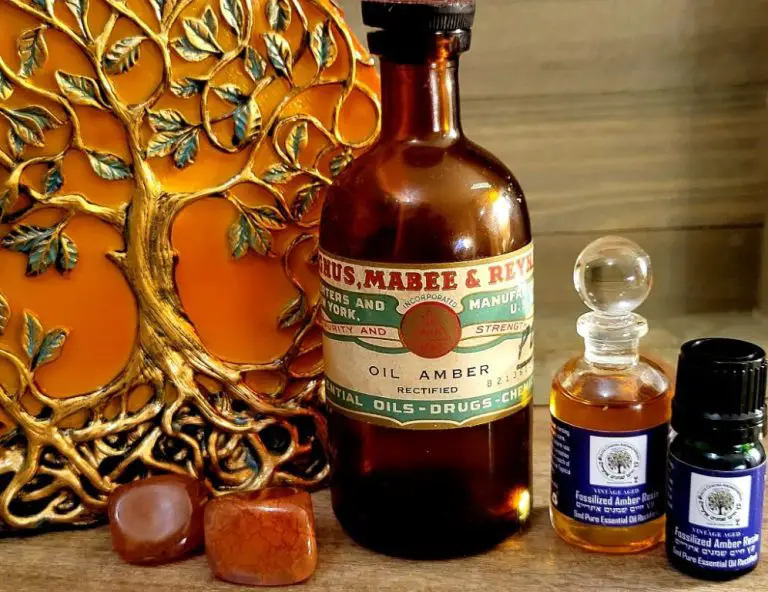What Is An Earthy Scent?
What are earthy scents?
Earthy scents are fragrance notes that evoke the aromas of nature, like soil, woods, and vegetation. They have a grounded, natural quality reminiscent of the great outdoors. Some of the most common earthy scent ingredients in perfumery include:
- Patchouli – A heavy, musky note derived from the leaves of a plant in the mint family. It has a rich, dark character with facets of wet soil, moss, and woods.
- Vetiver – A grassy, woody scent extracted from the roots of a tall grass native to India. It smells rooty, aromatic, and slightly damp.
- Oakmoss – A lichen that grows on oak trees and has a green, earthy character reminiscent of a forest floor.
We perceive these natural essences as “earthy” because they contain molecules that our noses associate with soil, undergrowth, trees, etc. Unlike citrus or floral notes, earthy scents feel grounded, dirty, and elemental. They lack the sweetness, fruitiness, or delicate bouquet of other fragrance families. Instead, their odor profile connects directly to nature in its rawest form.
Origins and History
Earthy scents trace their origins back to the natural world – the rich soil and forests where elemental plant life grows. Since ancient times, cultures around the world have used earthy botanicals in rituals, ceremonies, and perfumery.
Frankincense and myrrh, two of the earliest known perfume ingredients, impart deep, resinous aromas redolent of their origins in the arid climates where boswellia and commiphora trees grow. Ancient Egyptians used kyphi, a heady blend of earthy iris, juniper, and labdanum, in cultural and spiritual practices. In Ayurveda, the ancient Indian medicinal tradition, earthy spices like turmeric, ginger, and cinnamon feature prominently and connect to the grounding energy of the earth.
From the Middle Ages through the Renaissance and into the modern era, earthy notes like patchouli, vetiver, and oakmoss were treasured perfume ingredients. Classic fragrances like Chanel No. 5 highlight the depth and complexity earthy notes lend to a composition.
Chemical composition
The earthy scent given off by plants, foods, and other natural materials is primarily caused by specific aromatic organic compounds. The main chemical contributors to earthy scents are:
- Terpenes – A diverse class of organic compounds produced by plants that include substances like pinene, limonene, and geraniol. Certain musky, herbal terpenes can create an earthy aroma.
- Phenols – Aromatic compounds with a hydroxyl group bonded to a benzene ring. Phenols like guaiacol are responsible for the earthy, woody notes in scents like patchouli and smoke.
- Aldehydes – Organic compounds containing a carbonyl group linked to hydrogen atoms. Some aldehydes have musty, earthy odors reminiscent of soil.
- Pyrazines – Nitrogen-containing heterocyclic compounds often formed during cooking/roasting. Many pyrazines have distinct earthy, musty aromas.
- Thiols – Organosulfur compounds containing a carbon-bonded sulfhydryl group. Thiols are key to the earthy scents of onions, garlic, and animalic musk.
The unique combinations and concentrations of these chemical compounds lead to the complex, earthy aromas we perceive in natural materials and scented products.
Psychology and perceptions
Earthy scents are closely associated with nature and being outdoors. The smells of soil, moss, trees, and grass create a grounding effect by connecting us to the earth. Studies show that earthy scents can have calming effects and reduce stress.
Earthy fragrances are often perceived as masculine in nature. Woody and leathery notes evoke ruggedness, while tobacco and cannabis accords create a bold impression. Marketers have traditionally targeted men’s colognes and perfumes towards these more primal smells.
Aromas can powerfully impact moods, trigger memories, and stir emotions. An earthy fragrance might remind someone of hiking through the woods on a perfect autumn day. For others, it may conjure up feelings of safety, strength, and being firmly rooted in place and purpose.
Use in perfumery
Earthy scents are commonly used as base notes and fixatives in perfumes. The heavy, rich qualities of earthy scents help anchor and blend the brighter, more volatile top and middle notes. The lingering nature of earthy scents also helps perfumes last longer on the skin. Some classic earthy base notes used in perfumery include:
- Patchouli
- Oakmoss
- Vetiver
- Musk
- Amber
- Leather
- Tobacco
When paired with fresh, green or floral notes like bergamot, rose, jasmine, neroli, or geranium, earthy base notes add depth, complexity and sensuality. The contrast between light and dark notes creates an alluring experience for the nose. Earthy scents ground the flightiness of citrus or herbaceous notes. A bit of musk, amber or sandalwood helps soften and round out sharp green notes. Vetiver, cedar and oakmoss add a rugged edge to delicate florals. The interplay between earthy and fresh or floral notes is endlessly interesting for perfumers to explore.
Examples in perfumes
Some classic and popular perfumes showcase earthy scents beautifully. For example, the perfume Opium by Yves Saint Laurent has top notes of mandarin and bergamot mixed with spicy middle notes like coriander, cloves, and pepper. The base notes are earthy with patchouli, benzoin, myrrh, and vetiver. Another earthy perfume is Calvin Klein’s Obsession, formulated with top notes of mandarin, bergamot, and lemon, spicy middle notes like nutmeg, sage, coriander, and pepper, and base notes of amber, sandalwood, vanilla, vetiver, and musk.
Terre D’Hermès by Hermès highlights earthy vetiver as its central note. It combines the vetiver with citrus and woody notes for a crisp but sensual scent. Similarly, the perfume Encre Noire by Lalique layers cypress and vetiver over notes like cashmere wood and musk. For women, the perfume Angel by Thierry Mugler has earthy patchouli blended with praline, berries, and vanilla in a gourmand fragrance. Overall, these perfumes demonstrate how earthy notes can create complex, alluring fragrances. The earthy scents balance out brighter, fruitier notes and add depth and richness.
Use in aromatherapy
Earthy scents are commonly used in aromatherapy for their calming and grounding effects. The earthy, woody notes can help relieve stress and anxiety, while promoting a sense of stability. Some of the most popular earthy essential oils used in aromatherapy include:
- Patchouli – Known for its mood-lifting and relaxing properties, patchouli oil can help ease anxious feelings and calm the mind.
- Vetiver – Has a tranquilizing effect that is great for alleviating stress, anxiety, and depression.
- Sandalwood – Promotes relaxation and inner peace. Helps reduce tension and nervousness.
- Cedarwood – Instills a sense of groundedness and inner strength. Supports focus and calm.
These earthy essential oils can be enjoyed through different aromatherapy methods. Diffusing a few drops around your environment is an easy way to benefit. You can also dilute them with a carrier oil for massage or skin application. Adding some to a warm bath is another great option for a relaxing soak. No matter the method, earthy scents can be an amazing tool for soothing the mind and body.
Pairings and recipes
Earthy scents pair wonderfully with other natural aromas to create inviting scent combinations. When blending fragrances for soaps, candles, or other homemade products, here are some complementary pairings to try:
Cedarwood + Lavender: This classic blend mixes the soft floral aroma of lavender with the warm, woody notes of cedarwood. It’s a relaxing, cozy scent perfect for bedtime routines.
Patchouli + Bergamot: Patchouli’s musky, earthy depth gets brightened up with the crisp sweetness of bergamot in this energizing scent combo. Uplifting for morning showers or diffusion.
Sandalwood + Jasmine: These two scents beautifully balance each other out, with sandalwood’s dry woodiness tempering the lush blossoms of jasmine. Lovely for body products and perfumes.
Vetiver + Lemongrass: The sharp, grassy citrus notes of lemongrass enliven the musty, soil-like aroma of vetiver. An energizing scent for soaps and cleaning products.
When making homemade scented goods, keep proportions around 3:1 for your primary to secondary note. Start with a base of 2-3 ounces of a warm, woodsy essential oil like cedarwood or sandalwood, then add approximately 1 ounce of a brighter secondary note like lemon, bergamot, or lemongrass. Adding just a few drops of a floral oil like lavender or jasmine can also round out the blend beautifully.
DIY Products
Earthy scents like sandalwood, vetiver, and patchouli can be used to create wonderful homemade candles, soaps, and perfumes. Here are some tips for making your own earthy scented bath and body products at home:
Candles
For earthy candles, use natural soy or beeswax. Good fragrance oils to try are sandalwood, vetiver, cedarwood, and patchouli. Use 1-2 ounces of fragrance oil per pound of wax. Prepare the wax according to package directions, then add the fragrance once the wax has cooled slightly. Pour into containers and allow to fully set before lighting.
Soaps
Cold process soap making allows you to easily add earthy scents. Good oil choices are olive, coconut, or palm oils. Use 2-3 ounces of fragrance oil per pound of soap oils. Mix the lye and oils separately, then combine and add herbs, spices, or clay. Finally, stir in the earthy fragrance oil. Pour into molds and allow the soaps to cure 4-6 weeks before using.
Perfumes
To make earthy perfume oils at home, use a carrier oil like fractionated coconut oil as a base. Good essential oils to try are sandalwood, patchouli, cedarwood, and vetiver. Use 10-15 drops of essential oil per ounce of carrier oil. Mix together and store in an amber bottle. Apply sparingly to pulse points.
In conclusion
Earthy scents are complex yet inviting. They derive naturally from soil, plants, and the great outdoors. The chemical components like geosmin give earthy notes their distinct smell reminiscent of petrichor and the forest floor. While earthy scents may seem unconventional at first, they provide grounding and calming effects. When used properly in perfumes, aromatherapy, and other products, earthy fragrances connect us to nature. We explored the origins, psychology, and uses of these earthy aromas. Key highlights included:
– Earthy notes like patchouli originate from roots, moss, fungi, and other natural sources.
– Scent compounds like terpenes and benzenoids comprise the core earthy smell.
– Earthy fragrances are perceived as masculine and evoke feelings of stability.
– Perfumers cleverly blend earthy notes with fruits, spices, and flowers.
– Aromatherapists use earthy essential oils to promote relaxation.
Though often overlooked, earthy scents ground us and provide an primal link to the outdoors. As we spend more time immersed in technology, these natural fragrances bring us back to our roots. Earthy aromas should be treasured for their therapeutic and nostalgic qualities.




